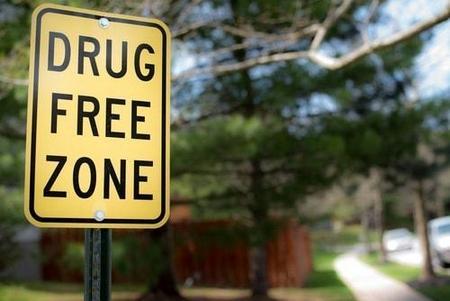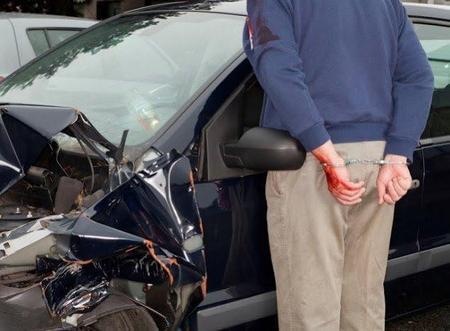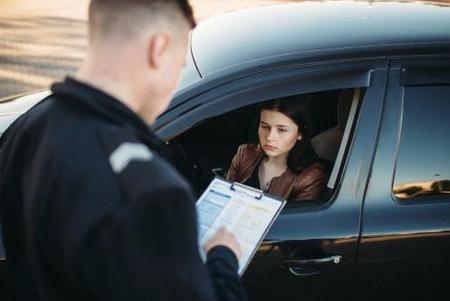Recent Blog Posts
What Are Defenses to Reckless Driving in Illinois?
 In Illinois, any extremely dangerous driving behavior that puts the safety of others at risk is considered reckless driving. Excessive speeding, tailgating, and changing lanes often and suddenly are all considered forms of reckless driving. This is a very serious offense for those charged in Illinois, and it could even result in jail time. As such, it is important that those accused speak to an Illinois criminal defense attorney that can help prepare a proper defense. Below are some of the tactics a defense attorney may use.
In Illinois, any extremely dangerous driving behavior that puts the safety of others at risk is considered reckless driving. Excessive speeding, tailgating, and changing lanes often and suddenly are all considered forms of reckless driving. This is a very serious offense for those charged in Illinois, and it could even result in jail time. As such, it is important that those accused speak to an Illinois criminal defense attorney that can help prepare a proper defense. Below are some of the tactics a defense attorney may use.
Lack of Intent
To be successful in a reckless driving case, the prosecution must show that the defendant intended to drive recklessly. Intent is difficult to prove in any criminal case because it is challenging to show what a person was thinking at a specific point in time.
In some cases, the original charges do not specifically state that a driver was driving recklessly. A traffic ticket, for example, may only say that the driver was negligent. This is a lack of specificity, and it opens the door for a defense attorney to ask for a Bill of Particulars.
When Is it Illegal to Possess Prescription Drugs in Rolling Meadows?
 When most people think of criminal drug charges, they often think of those relating to hard street drugs, such as cocaine, meth, and heroin. However, did you know that even if you have a prescription for a drug, you could still face criminal charges under certain circumstances?
When most people think of criminal drug charges, they often think of those relating to hard street drugs, such as cocaine, meth, and heroin. However, did you know that even if you have a prescription for a drug, you could still face criminal charges under certain circumstances?
In Illinois, there are many offenses associated with prescription drugs, and many residents are not aware of that fact. For this reason, too many people are charged by overzealous law enforcement. When they are, they often do not know what to do. The first step to take is to speak to a Rolling Meadows criminal defense attorney.
Illinois Law on Prescription Drugs
Under the Illinois Compiled Statutes, there are certain offenses related to prescription drugs that have serious consequences. The statutes stipulate that it is against the law to manufacture, distribute, or possess controlled substances, including prescription drugs. The most common of these drugs fall within Schedules 2 and 4 and include:
Differences Between a License Suspension and Revocation in Illinois
 Many people use the terms ‘license suspension’ and ‘license revocation’ interchangeably. While it is true that each will take away your driving privileges for some time, there are differences between a license suspension and revocation. If you are facing charges for a DUI, underage drinking, or any other offense that could result in you losing your license, it is important you understand what those differences are.
Many people use the terms ‘license suspension’ and ‘license revocation’ interchangeably. While it is true that each will take away your driving privileges for some time, there are differences between a license suspension and revocation. If you are facing charges for a DUI, underage drinking, or any other offense that could result in you losing your license, it is important you understand what those differences are.
A Driver’s License Suspension in Illinois
A driver’s license suspension in Illinois means that you still have your driver’s license, but it is invalid for a period of time. During this time, you are unable to drive.
In Illinois, a license may be suspended under definite terms, or it could be suspended indefinitely. Definite suspensions have an end date associated with them. This is the date you are able to drive again if you pay the proper fees and complete any requirements, such as attending a substance abuse treatment program.
Do You Know About the Drug-Free Zones in Illinois?
 Illinois has very strict laws surrounding drugs. Anyone convicted of committing an offense outlined in the Illinois Controlled Substances Act is subject to harsh penalties, no matter where they are at the time. However, location matters when charged with a drug crime. Like many other states, Illinois has drug-free zones. This means anyone caught committing a drug crime in these zones will face increased penalties, which may include several decades in jail.
Illinois has very strict laws surrounding drugs. Anyone convicted of committing an offense outlined in the Illinois Controlled Substances Act is subject to harsh penalties, no matter where they are at the time. However, location matters when charged with a drug crime. Like many other states, Illinois has drug-free zones. This means anyone caught committing a drug crime in these zones will face increased penalties, which may include several decades in jail.
Drug-free zones are highly controversial, and many states are considering removing these zones from their statutes. Unfortunately, Illinois has not yet made any such proposal to change their legislation.
How Drug-Free Zones Work
It was during the “War on Drugs” in the 1980s that drug-free zones became written into the law of every state. These laws stated there were certain zones that must be kept drug-free. The intent was to keep drugs out of the hands of children and protect them from other crimes such as theft, prostitution, and violent crimes associated with drug activity.
Illinois DUI FAQs
 There are many myths floating around out there about a person’s rights and obligations when they are pulled over for a DUI. This leads to many questions, and people not being aware of what they should do and what they should not if a police officer pulls them over. It is important that everyone in Illinois knows what the law requires of them, so they do not find themselves in deeper trouble after the initial traffic stop. Below are some of the most frequently asked questions about DUI charges in Illinois, and the answers to them.
There are many myths floating around out there about a person’s rights and obligations when they are pulled over for a DUI. This leads to many questions, and people not being aware of what they should do and what they should not if a police officer pulls them over. It is important that everyone in Illinois knows what the law requires of them, so they do not find themselves in deeper trouble after the initial traffic stop. Below are some of the most frequently asked questions about DUI charges in Illinois, and the answers to them.
What Is a DUI?
DUI stands for driving under the influence. In Illinois, any motorist caught driving with a blood alcohol content (BAC) 0.08 or higher will likely face DUI charges. Driving while impaired by other substances such as medicinal marijuana or prescription medication can also result in a DUI charge. Individuals under the age of 21 and bus drivers must have a BAC of zero.
False Accusations of Domestic Violence
 Being falsely accused of domestic violence is extremely scary. You are likely confused, emotional, and wondering what to do next. These are all very natural reactions. However, the things you do, and do not do, in the next few days and weeks are important. They can help your case, or result in the prosecution pursuing charges. Below are the three most important things to do when someone has falsely accused you of domestic violence.
Being falsely accused of domestic violence is extremely scary. You are likely confused, emotional, and wondering what to do next. These are all very natural reactions. However, the things you do, and do not do, in the next few days and weeks are important. They can help your case, or result in the prosecution pursuing charges. Below are the three most important things to do when someone has falsely accused you of domestic violence.
Do Not Speak to the Other Party
It is very common for those falsely accused to want to reach out to the other party. This is one of the biggest mistakes made in domestic violence cases. It is crucial you do not speak to your accuser. If there has been an order of protection issued against you, this is a violation that has serious consequences. Even if an order has not been issued, speaking to your accuser can have disastrous consequences. They may use anything you say against you later on, and could even take your words out of context.
What Is Reckless Driving in Illinois?
 In early July, a Joliet man was charged with reckless driving, among other charges, and was placed in jail. Many people think reckless driving is a simple traffic violation, similar to being pulled over for speeding. However, in Illinois, reckless driving is a very serious charge. It could even lead to jail time. So, what is reckless driving in Illinois, and what are the possible penalties?
In early July, a Joliet man was charged with reckless driving, among other charges, and was placed in jail. Many people think reckless driving is a simple traffic violation, similar to being pulled over for speeding. However, in Illinois, reckless driving is a very serious charge. It could even lead to jail time. So, what is reckless driving in Illinois, and what are the possible penalties?
Reckless Driving in Illinois Defined
Illinois statute 625 ILCS 5/11-503 provides a few definitions for reckless driving. The first is operating a vehicle in such a way that shows a complete disregard for the safety of other people. Under this statute, reckless driving is also defined as using an incline, such as a hill, railroad crossing, or bridge approach, to cause a vehicle to become airborne.
While these are very dramatic and somewhat obvious definitions of reckless driving, there is another that many Illinois drivers are unaware of. This is when a motorist drives a vehicle 35 miles per hour over the posted speed limit.
What Are Defenses to Domestic Violence in Illinois?
 Domestic violence is a problem in Illinois and all across the country. As such, the states have enacted strict laws to protect victims of domestic violence. In Illinois, one such law is the Illinois Domestic Violence Act of 1986. This law allows protections and remedies for victims, but sometimes it is used inappropriately. Not everyone accused of or charged with domestic violence is guilty. Unfortunately, even when that is the case, juries tend to sympathize with the victim.
Domestic violence is a problem in Illinois and all across the country. As such, the states have enacted strict laws to protect victims of domestic violence. In Illinois, one such law is the Illinois Domestic Violence Act of 1986. This law allows protections and remedies for victims, but sometimes it is used inappropriately. Not everyone accused of or charged with domestic violence is guilty. Unfortunately, even when that is the case, juries tend to sympathize with the victim.
For this reason, anyone facing charges must speak to a Rolling Meadows domestic violence attorney that can build them a solid defense. Some of the defenses most commonly used in domestic violence cases are below.
Self-Defense
Self-defense is one of the most common defenses used in domestic violence cases. Sometimes two people in a household may argue to the point that one becomes aggressive and violent. Even if they do not physically touch the other person, they may throw things or otherwise threaten harm. When this is the case, Illinois law allows a certain amount of force if you are defending yourself or your property. As such, self-defense is a very solid argument for domestic violence charges.
Defenses to Retail Theft
 In May, a woman was sentenced to four years in prison after being convicted of stealing pillowcases from the Mattoon Walmart on July 4 of last year. Her charge was upgraded from a misdemeanor to a felony due to past convictions. No agreement between the defense and prosecution could be reached regarding her sentencing after she pleaded guilty.
In May, a woman was sentenced to four years in prison after being convicted of stealing pillowcases from the Mattoon Walmart on July 4 of last year. Her charge was upgraded from a misdemeanor to a felony due to past convictions. No agreement between the defense and prosecution could be reached regarding her sentencing after she pleaded guilty.
The penalty was a harsh one, and one many people face when they are accused of retail theft. Some people face worse. It is because of this that when a person is facing charges of retail theft, they often imagine the worst. However, if you have been charged, it is important to understand there are defenses available.
Lawful Ownership
It is not uncommon for people to shop at the same store time and time again. When they have visited a store in the past and purchased something, they often return to the same store with the same product. The store owner or staff may see the item and accuse a person of retail theft, even though they had purchased it in the past.
Traffic Ticket FAQs
 Any time someone is pulled over for a traffic ticket, they have many questions. Will they have to go to court? Will they lose their license? Is traffic safety school an option? These are just a few of the most common questions criminal defense attorneys in Rolling Meadows are asked every day. The answers to them, and to other frequently asked questions about traffic tickets, are below.
Any time someone is pulled over for a traffic ticket, they have many questions. Will they have to go to court? Will they lose their license? Is traffic safety school an option? These are just a few of the most common questions criminal defense attorneys in Rolling Meadows are asked every day. The answers to them, and to other frequently asked questions about traffic tickets, are below.
What Should I Do if I Am Pulled Over?
If you are pulled over, it is best to cooperate with police. Turn off your engine and radio, and keep your hands visible. Do not reach for your driver’s license or insurance information until the officer asks to see them. Remain calm and friendly, and do not argue with the officer.
Do not admit guilt, even if the officer asks if you know why they pulled you over. The officer could be recording your response so they can use it against you later in court. Cooperate fully and, if the officer issues a traffic ticket, contact an attorney.






















